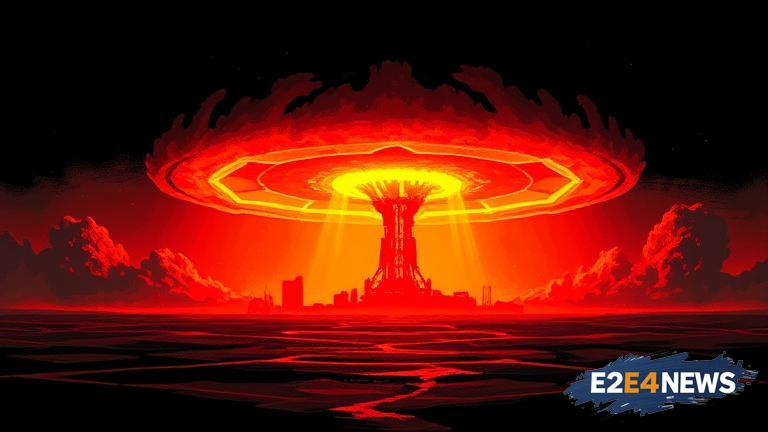The world has witnessed numerous conflicts and threats over the years, but none as potentially devastating as the specter of nuclear war. Eighty years have passed since the first nuclear weapons were developed, and yet the threat persists, looming large over global security and stability. The devastating effects of nuclear warfare were first felt in 1945, when atomic bombs were dropped on Hiroshima and Nagasaki, resulting in unprecedented loss of life and long-lasting environmental damage. Since then, the international community has grappled with the challenges of nuclear proliferation, disarmament, and non-proliferation. Despite efforts to reduce nuclear arsenals and prevent the spread of nuclear weapons, the threat remains, fueled by geopolitical tensions, regional conflicts, and the pursuit of nuclear capabilities by rogue states. The consequences of a nuclear conflict would be catastrophic, causing widespread destruction, radioactive fallout, and long-term damage to the environment and human health. The threat is not limited to the use of nuclear weapons in conflict but also extends to the risks of nuclear accidents, sabotage, and terrorism. The international community has established various treaties and agreements, such as the Nuclear Non-Proliferation Treaty (NPT) and the Comprehensive Nuclear-Test-Ban Treaty (CTBT), to regulate nuclear activities and prevent the spread of nuclear weapons. However, these efforts have been hindered by the lack of universal adherence, inadequate verification mechanisms, and the persistence of nuclear-armed states. The United States and Russia, as the largest nuclear-armed states, bear a significant responsibility in reducing their nuclear arsenals and promoting disarmament. Other countries, such as China, France, and the United Kingdom, also possess nuclear capabilities, and their actions can either contribute to or undermine global efforts to reduce the nuclear threat. The nuclear programs of North Korea and Iran have raised concerns in recent years, with the international community imposing sanctions and engaging in diplomatic efforts to curb their nuclear ambitions. The threat of nuclear terrorism, where non-state actors could acquire and use nuclear materials, is another concern that requires urgent attention. To mitigate the nuclear threat, it is essential to strengthen international cooperation, enhance verification mechanisms, and promote disarmament and non-proliferation efforts. This can be achieved through a combination of diplomatic engagement, economic incentives, and robust security measures. The role of civil society, including non-governmental organizations and advocacy groups, is crucial in raising awareness about the nuclear threat and promoting public support for disarmament and non-proliferation efforts. Ultimately, the persistence of the nuclear threat 80 years after its inception serves as a stark reminder of the need for sustained international efforts to prevent the use of nuclear weapons and promote a more stable and secure world. The consequences of failure would be too catastrophic to contemplate, and it is the responsibility of current and future generations to work towards a nuclear-free world. The path forward will require perseverance, cooperation, and a commitment to disarmament and non-proliferation. As the world continues to grapple with the challenges of the 21st century, it is essential to prioritize the reduction of the nuclear threat and promote a more peaceful and secure world for all. The nuclear threat is a global concern that requires a collective response, and it is only through cooperation and determination that we can mitigate this threat and create a safer world. The international community must work together to address the root causes of the nuclear threat, including geopolitical tensions, regional conflicts, and the pursuit of nuclear capabilities by rogue states. By promoting disarmament, non-proliferation, and international cooperation, we can reduce the risk of nuclear conflict and create a more stable and secure world. The next generation of leaders must prioritize the reduction of the nuclear threat and work towards a world where nuclear weapons are no longer seen as a viable option for conflict resolution. Only through sustained efforts and a commitment to disarmament and non-proliferation can we hope to create a world where the threat of nuclear war is a distant memory.





